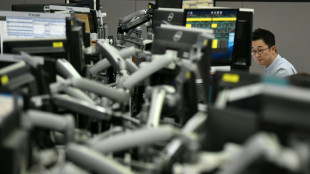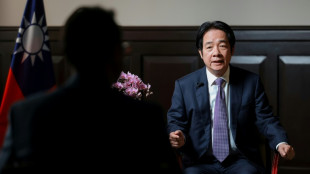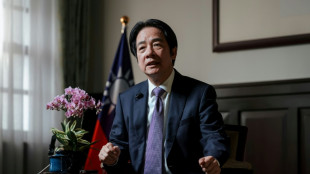

Swiss to vote on compulsory civic duty for all
The Swiss will vote Sunday on replacing men's current military service requirement with a compulsory civic duty for all, with backers and opponents both claiming to be championing women's rights.
As part of Switzerland's direct democratic system, voters will also be weighing in on whether to slap new taxes on the super-rich to help finance the country's effort against climate change.
Neither initiative is expected to pass, according to recent polls, but they have generated significant discussion in the wealthy Alpine nation.
The Swiss government and parliament have urged voters to reject the two items, charging they would entail huge costs and could threaten the economy.
The so-called Civic Duty initiative initially garnered quite broad backing, but its support has crumbled in recent weeks, with the latest gfs.bern survey showing 64 percent of those polled were opposed.
The committee behind the initiative maintains that requiring every Swiss citizen, regardless of gender, to do national service in the army or in a civilian capacity would strengthen the social cohesion.
- 'True equality' -
The initiative aims for "true equality", committee head Noemie Roten told AFP.
She described the current system as discriminatory -- for men, but also for women, who are largely excluded from useful networks and experiences obtained during service.
"Be it in the army, civil protection, civil service or voluntary firefighters, the idea is for every young person to contribute to the collective wellbeing," she said.
Amid geopolitical turmoil and war raging in Europe, Roten said it was time to give women equal ownership in a collective project to protect the population.
Opponents of the initiative denied it would enhance equality.
Cyrielle Huguenot, head of equality, family and migration issues at the Swiss Trade Union Federation (USS), charged the initiative "completely obscures the reality of women in this country".
She told AFP that Swiss women already dedicate 60 percent of their time to unpaid tasks, while for men "it is the opposite".
"And now you are asking women to provide even more unpaid service. This would only exacerbate the imbalance."
In its opposition to the measure, the government echoed that argument.
It also insisted that doubling the number of recruits would far outstrip the needs and could hurt the Swiss economy.
Bern estimated it would double the cost of Switzerland's current militia system, which sees army conscripts do at least four months' service before being called up repeatedly over a decade for weeks-long refresher sessions.
Roten rejected the government argument, saying that with so many more people, the service duration could easily be shortened, "cutting costs".
She also maintained the national civic duty would be "an investment", boosting Swiss resilience in the case of catastrophe.
The cost of not being prepared, she warned, "will be counted in lives".
- 'Tax the rich' -
The second item on the ballot Sunday, known as the "initiative for a future", has also sparked controversy with its demand for a new climate tax on big inheritances.
It appears even less likely to pass, with a full 68 percent of those questioned for the latest gfs.bern poll opposed.
The text, put forward by the youth wing of Switzerland's Socialist Party, calls for a 50-percent inheritance tax on amounts of over 50 million Swiss francs ($63 million) -- estimated to affect some 2,500 households.
The group calculates that the tax would rake in six billion Swiss francs annually, which could go towards funding an ecological transformation of Switzerland's economy through things like renovating buildings, developing renewable energy and expanding public transportation.
The campaign posters carry messages such as "Tax the rich, save the climate" and "The ultra-rich inherit billions, we inherit crises!".
A massive counter campaign has carried the opponents' warnings that very wealthy people might leave the country to avoid the tax, weakening the economy.
People inheriting family businesses might also be hurt, they caution.
E.Accardi--IM



